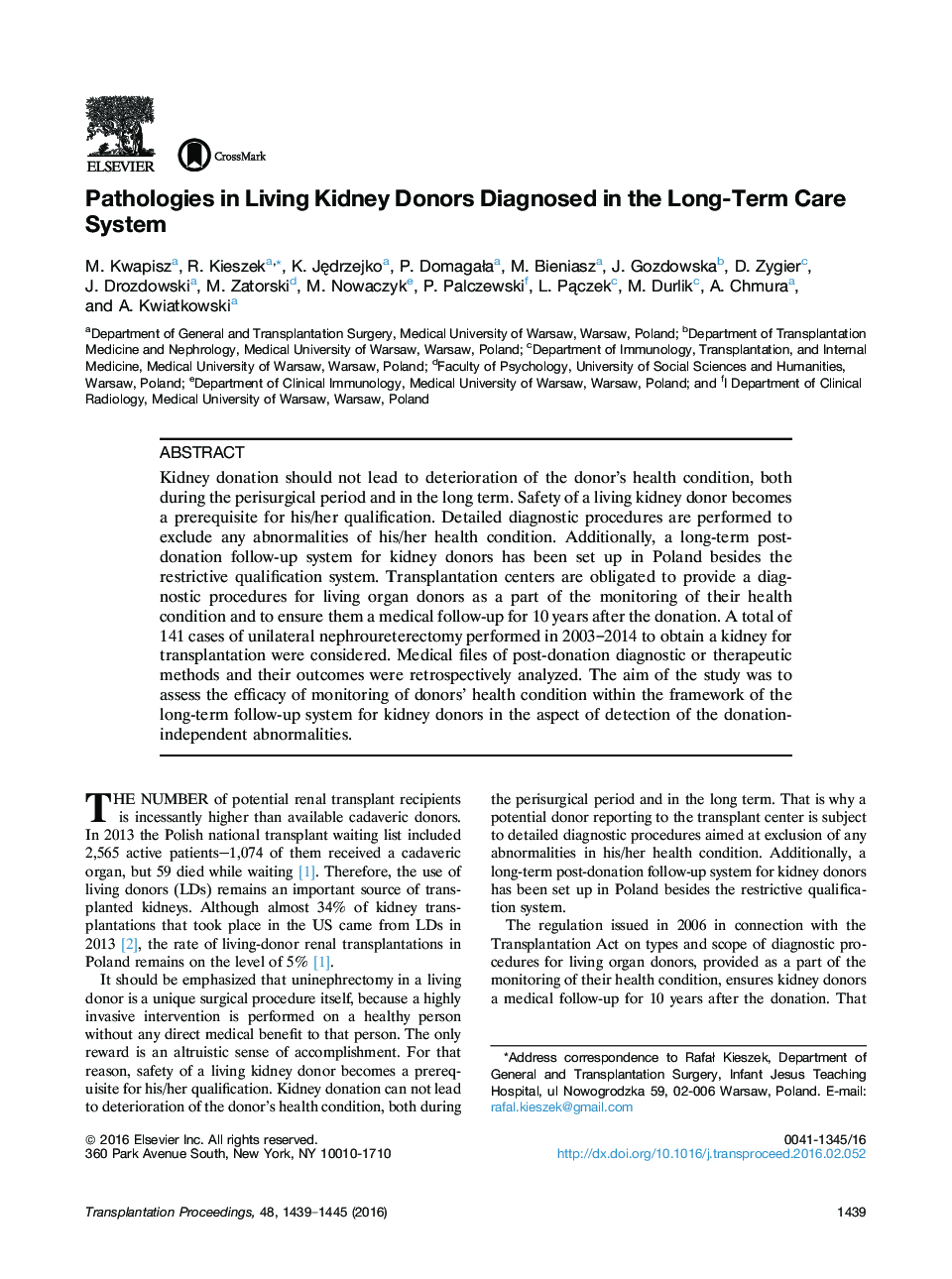| Article ID | Journal | Published Year | Pages | File Type |
|---|---|---|---|---|
| 4256050 | Transplantation Proceedings | 2016 | 7 Pages |
•A program for long-term care of living kidney donors is described.•Short- and long-term effects of kidney donation are analyzed.•Difficulties in maintenance of detailed follow-up system are discussed.
Kidney donation should not lead to deterioration of the donor's health condition, both during the perisurgical period and in the long term. Safety of a living kidney donor becomes a prerequisite for his/her qualification. Detailed diagnostic procedures are performed to exclude any abnormalities of his/her health condition. Additionally, a long-term post-donation follow-up system for kidney donors has been set up in Poland besides the restrictive qualification system. Transplantation centers are obligated to provide a diagnostic procedures for living organ donors as a part of the monitoring of their health condition and to ensure them a medical follow-up for 10 years after the donation. A total of 141 cases of unilateral nephroureterectomy performed in 2003–2014 to obtain a kidney for transplantation were considered. Medical files of post-donation diagnostic or therapeutic methods and their outcomes were retrospectively analyzed. The aim of the study was to assess the efficacy of monitoring of donors' health condition within the framework of the long-term follow-up system for kidney donors in the aspect of detection of the donation-independent abnormalities.
